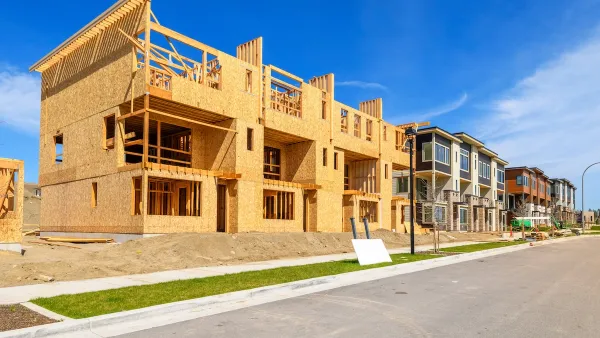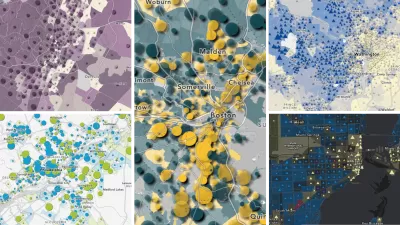After the Census Bureau released population estimates showing that core counties were (at least in some metro areas) growing faster than exurban counties, the media was full of headlines about this alleged trend. An extreme example came from the Washington Post: "An end to America's exurbia?" (1)
After the Census Bureau released population estimates showing that core counties were (at least in some metro areas) growing faster than exurban counties, the media was full of headlines about this alleged trend. An extreme example came from the Washington Post: "An end to America's exurbia?" (1)
But in fact, these estimates prove almost nothing, for two reasons. First, Census mid-decade estimates are only estimates- which means that their reliability is a bit questionable. To show one extreme example, 2009 Census estimates "showed" that the city of Atlanta's population had risen to 540,000 (2) - about a 30 percent jump from its 2000 population. But the 2010 Census showed that the city's population had grown only slightly, to 420,000 (up from 416,000 in 2000). (3)
Second, this Census estimate is just for one year, and thus may be either (a) a statistical fluke or (b) a temporary result of the recession (which, by making houses worth less, discouraged people from selling them and thus impeded residential mobility generally). It may be the case that later estimates will yield differing results, or that migration to outer suburbs will increase when housing values pick up and people can sell their existing houses for more.
On the other hand, it may be the case that rising energy prices and falling housing prices create a long-term trend- but we won't know for sure until an actual Census is taken eight years from now.
(1) http://www.washingtonpost.com/business/an-end-to-americas-exurbia-for-f…
(2) http://www.google.com/publicdata/explore?ds=kf7tgg1uo9ude_&met_y=popula…

Planetizen Federal Action Tracker
A weekly monitor of how Trump’s orders and actions are impacting planners and planning in America.

Maui's Vacation Rental Debate Turns Ugly
Verbal attacks, misinformation campaigns and fistfights plague a high-stakes debate to convert thousands of vacation rentals into long-term housing.

San Francisco Suspends Traffic Calming Amidst Record Deaths
Citing “a challenging fiscal landscape,” the city will cease the program on the heels of 42 traffic deaths, including 24 pedestrians.

Defunct Pittsburgh Power Plant to Become Residential Tower
A decommissioned steam heat plant will be redeveloped into almost 100 affordable housing units.

Trump Prompts Restructuring of Transportation Research Board in “Unprecedented Overreach”
The TRB has eliminated more than half of its committees including those focused on climate, equity, and cities.

Amtrak Rolls Out New Orleans to Alabama “Mardi Gras” Train
The new service will operate morning and evening departures between Mobile and New Orleans.
Urban Design for Planners 1: Software Tools
This six-course series explores essential urban design concepts using open source software and equips planners with the tools they need to participate fully in the urban design process.
Planning for Universal Design
Learn the tools for implementing Universal Design in planning regulations.
Heyer Gruel & Associates PA
JM Goldson LLC
Custer County Colorado
City of Camden Redevelopment Agency
City of Astoria
Transportation Research & Education Center (TREC) at Portland State University
Jefferson Parish Government
Camden Redevelopment Agency
City of Claremont






























